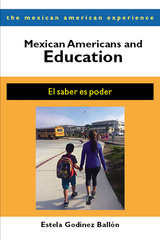
224 pages, 6 x 9
5 photos, 4 illustrations, 9 tables
Paperback
Release Date:27 Feb 2014
ISBN:9780816530793
Raza Studies
The Public Option for Educational Revolution
The University of Arizona Press
The well-known and controversial Mexican American studies (MAS) program in Arizona’s Tucson Unified School District set out to create an equitable and excellent educational experience for Latino students. Raza Studies: The Public Option for Educational Revolution offers the first comprehensive account of this progressive—indeed revolutionary—program by those who created it, implemented it, and have struggled to protect it.
Inspired by Paulo Freire’s vision for critical pedagogy and Chicano activists of the 1960s, the designers of the program believed their program would encourage academic achievement and engagement by Mexican American students. With chapters by leading scholars, this volume explains how the program used “critically compassionate intellectualism” to help students become “transformative intellectuals” who successfully worked to improve their level of academic achievement, as well as create social change in their schools and communities.
Despite its popularity and success inverting the achievement gap, in 2010 Arizona state legislators introduced and passed legislation with the intent of banning MAS or any similar curriculum in public schools. Raza Studies is a passionate defense of the program in the face of heated local and national attention. It recounts how one program dared to venture to a world of possibility, hope, and struggle, and offers compelling evidence of success for social justice education programs.
Inspired by Paulo Freire’s vision for critical pedagogy and Chicano activists of the 1960s, the designers of the program believed their program would encourage academic achievement and engagement by Mexican American students. With chapters by leading scholars, this volume explains how the program used “critically compassionate intellectualism” to help students become “transformative intellectuals” who successfully worked to improve their level of academic achievement, as well as create social change in their schools and communities.
Despite its popularity and success inverting the achievement gap, in 2010 Arizona state legislators introduced and passed legislation with the intent of banning MAS or any similar curriculum in public schools. Raza Studies is a passionate defense of the program in the face of heated local and national attention. It recounts how one program dared to venture to a world of possibility, hope, and struggle, and offers compelling evidence of success for social justice education programs.
Without a doubt, reporting on the work of the MAS program in the Tucson Unified School District stands to make a major contribution to the field of urban education.’—Jeff Duncan-Andrade, author of The Art of Critical Pedagogy: Possibilities for Moving from Theory to Practice in Urban Schools
‘Currently there are few accounts that address community resistance to exclusionary policies by way of creating K-12 curriculum for Latino/a youth. People across the country are eager to hear the story of Raza studies from the participants.’—David Stovall, co-editor of Handbook of Social Justice in Education
‘This book will make a significant contribution to several fields of study, most notably to the subfield of public anthropology and education.’—Luis Urrieta, author of Working from Within: Chicana and Chicano Activist Educators in Whitestream Schools
Julio Cammarota is associate professor of Mexican American and Raza studies at the University of Arizona. He is the author of Sueños Americanos: Barrio Youth Negotiating Social and Cultural Identities.
Augustine Romero is the director of the Department of Culturally Responsive Pedagogy and Instruction in Tucson Unified School District. He is also the co-founder of the Social Justice Education Project.
Augustine Romero is the director of the Department of Culturally Responsive Pedagogy and Instruction in Tucson Unified School District. He is also the co-founder of the Social Justice Education Project.
















